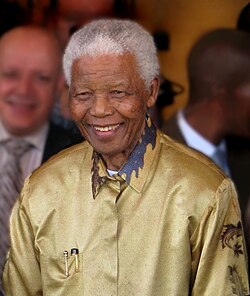This article needs additional citations for verification .(February 2025) |
| Part of a series on the |
| Politics of South Africa |
|---|
 |
The following is an incomplete list of South African politicians, both past and present.
This article needs additional citations for verification .(February 2025) |
| Part of a series on the |
| Politics of South Africa |
|---|
 |
The following is an incomplete list of South African politicians, both past and present.



